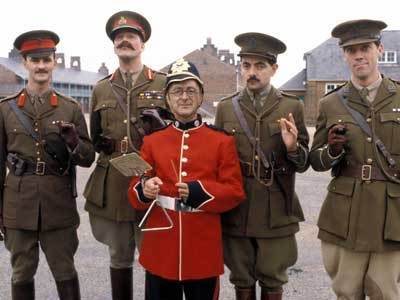Education Secretary Michael Gove does not believe that those academics who follow shows such as Blackadder Goes Forth and build up myths about World War I using the stories related in the shows, should be taken seriously.
There is one thing nobody could ever deny; that is the fact that the First World War was nothing else but a national tragedy, where almost 750,000 British servicemen lost their lives in the fighting and twice that number returned home with horrible wounds and/or shell shock.
The film which influenced the whole of the nation in hating the generals and which depicted the idea of “lions led by donkeys” was the 50-year-old cinematic and theatrical production – Oh! What A Lovely War. The successful production was based on Tory MP Alan Clark’s book, ‘The Donkeys’.
At the time, the majority believed the war was actually just a small conflict, a fight, where Germany had to be kicked out of France and Belgium. The whole job was obviously done by an army built of British citizens who fought continuously for four years and who recorded the lowest number of casualties than any of the Allied forces. Their achievement was hugely praised and most proudly received by those who fought in the war, the Express reports.
Only a few years back, Britain’s people requested for the statue of Field Marshal Douglas Haig to be pulled down, although more of them attended his funeral when he died, in 1928, than they did at Princess Diana’s funeral. But hey, he wasn’t just anybody, he was ‘the man who won the war’. And what about the other generals, the men keeping him company on the front, the men described by Brigadier Professor Richard Holmes as “honest, brave, hard-working soldiers” and who knew exactly what the consequences of any mistake would be.
Some numbers following the end of the First World War showed that a total of 97 generals were killed during the war, with 146 becoming prisoners of war. Only in the Battle of Loos alone, in 1915, more British generals lost their lives than during the entire World War II.
Some would say that wartime poets and writers were all against the war. However, the only successful creation was a play written by RC Sherriff, ‘Journey’s End’ and was set in a trench. He couldn’t believe the critics viewed it as a pacifist play, when in fact, he wrote it with no condemnation of the war, but to honor the men that bravely fought with him in the war.
